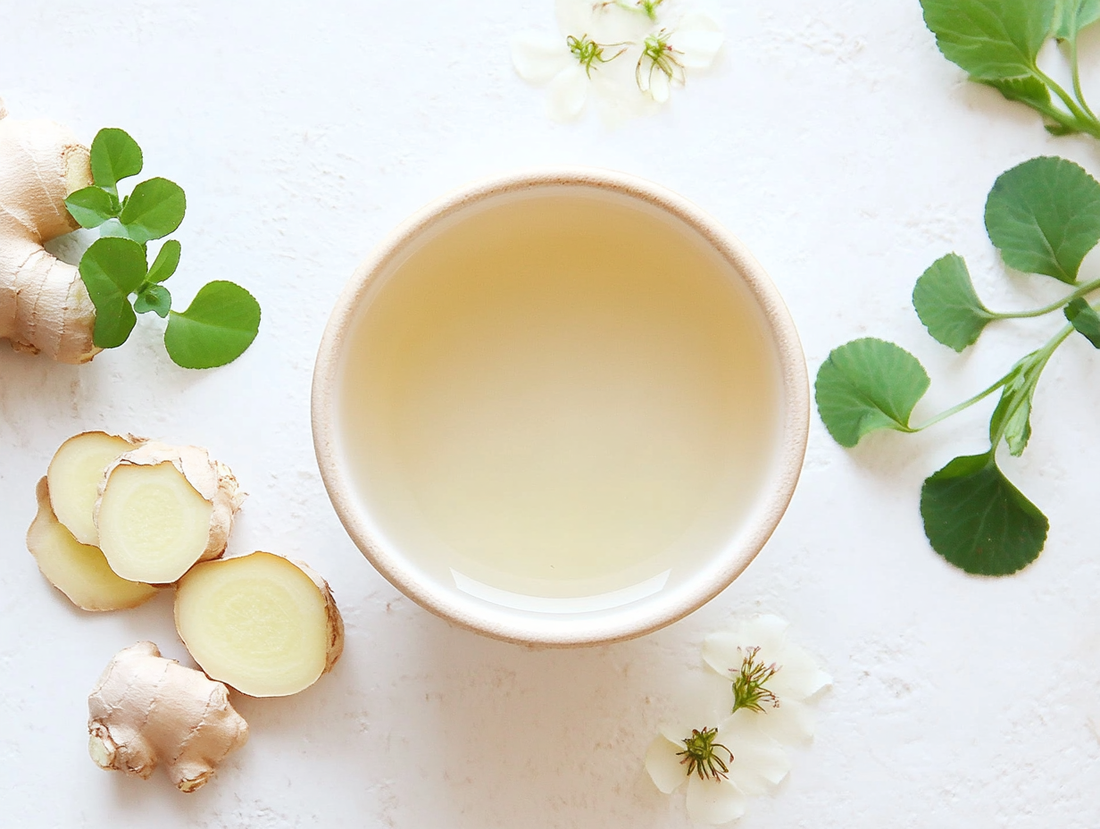
Best teas for people with diabetes
Share
Research has shown that certain teas have anti-inflammatory, blood-sugar-lowering, and insulin-sensitizing properties, making them excellent choices for diabetes management.
💖 Learn More About Lowering Blood SugarThe following teas are some of the best options for people with diabetes.
Green tea
Green tea offers a multitude of health benefits, some of which are particularly beneficial for those with diabetes. For example, drinking green tea may help reduce cellular damage, decrease inflammation, and optimize blood sugar control (5Trusted Source).
Some of the compounds in green tea, including epigallocatechin gallate (EGCG), have been shown to stimulate the uptake of glucose into skeletal muscle cells, therefore reducing blood sugar levels (6Trusted Source).
A review of 17 studies that included 1,133 people with and without diabetes found that green tea intake significantly reduced fasting blood sugar levels and hemoglobin A1c (HbA1c), a marker of long-term blood sugar control (7Trusted Source).
What’s more, studies show that drinking green tea may help reduce the chances of developing diabetes in the first place (8Trusted Source).
Note that these studies generally advise drinking 3–4 cups of green tea per day to reap the benefits mentioned above.
Black tea
Black tea contains potent plant compounds, including theaflavins and thearubigins, which have anti-inflammatory, antioxidant, and blood-sugar-lowering properties (9Trusted Source).
A rodent study suggests that black tea intake interferes with carb absorption by suppressing certain enzymes and may help keep blood sugar levels in check (10Trusted Source).
A study in 24 people, some of whom had prediabetes, demonstrated that consuming black tea beverages alongside a sugary drink significantly decreased blood sugar levels, compared with a control group (9Trusted Source).
Another rodent study suggested black tea may also help encourage healthy insulin secretion by protecting the insulin-secreting cells of the pancreas (10Trusted Source).
Human studies have demonstrated benefits as well, but the mechanism of action is not clear (5Trusted Source).
As is the case with green tea, studies on black tea generally recommend drinking 3–4 cups per day to reap notable benefits.
Hibiscus tea
Hibiscus tea, also known as sour tea, is a brightly colored, tart tea made from the petals of the Hibiscus sabdariffa plant.
Hibiscus petals contain a variety of beneficial polyphenol antioxidants, including organic acids and anthocyanins, which give hibiscus tea its bright ruby color (11Trusted Source).
Consuming hibiscus tea has been shown to have numerous beneficial effects on health, ranging from lowering blood pressure levels to reducing inflammation.
High blood pressure is common in people with diabetes. In fact, it’s estimated that over 73% of Americans with diabetes also have high blood pressure (12Trusted Source, 13Trusted Source, 14Trusted Source).
Drinking hibiscus tea may help those with diabetes control their blood pressure levels.
One study in 60 people with diabetes demonstrated that those who drank 8 ounces (240 mL) of hibiscus tea twice a day for 1 month experienced significant reductions in systolic blood pressure (the top number of blood pressure readings), compared with black tea (15Trusted Source)
Additionally, studies show that hibiscus may help reduce insulin resistance (16Trusted Source, 17Trusted Source, 18Trusted Source, 19Trusted Source).
Note that hibiscus tea may interact with the blood pressure medication hydrochlorothiazide, a diuretic commonly prescribed for those with high blood pressure.
Cinnamon tea
Cinnamon is a popular spice that has reported antidiabetic properties.
Many people take concentrated cinnamon supplements to help reduce their blood sugar levels, but studies show that sipping on a cup of cinnamon tea may have benefits as well.
A study in 30 adults with normal blood sugar levels demonstrated that drinking 3.5 ounces (100 mL) of cinnamon tea before ingesting a sugar solution led to decreased blood sugar levels, compared with a control group (20Trusted Source).
Another recent study showed that taking 6 grams of a cinnamon supplement daily for 40 days significantly decreased pre-meal glucose levels in healthy adults (21Trusted Source).
There are several mechanisms by which cinnamon may help reduce blood sugar levels, including slowing the release of sugar into the bloodstream, enhancing cellular glucose uptake, and promoting insulin sensitivity (20Trusted Source).
Nevertheless, a 2013 review found that although cinnamon can significantly benefit fasting blood sugar levels and lipid levels, it doesn’t seem to be effective for controlling average blood sugar or HbA1C (22Trusted Source).
More human research is needed before strong conclusions on cinnamon’s effect on blood sugar levels can be made.
Turmeric tea
Turmeric is a vibrant orange spice that’s well known for its powerful antioxidant and anti-inflammatory properties. Curcumin, the main active component in turmeric, has been studied for its blood-sugar-lowering properties.
Studies suggest that curcumin may promote healthy blood sugar levels by improving insulin sensitivity and increasing glucose uptake in tissues (23Trusted Source).
A 2020 review of human and animal studies found that curcumin intake was associated with significantly reduced blood sugar and blood lipid levels (23Trusted Source).
Plus, the review noted that curcumin intake may help reduce cellular damage, decrease levels of pro-inflammatory compounds, and improve kidney function (23Trusted Source).
Turmeric tea can be made at home using turmeric powder or purchased from health food stores.
It should be noted that piperine, a major component of black pepper, significantly increases curcumin bioavailability, so don’t forget to add a sprinkle of black pepper to your turmeric tea for maximum benefits (24Trusted Source).
Lemon balm tea
Lemon balm is a soothing herb that’s part of the mint family. It has a bright lemony scent and is popularly enjoyed as an herbal tea.
Research suggests that lemon balm essential oils may help stimulate glucose uptake and inhibit glucose synthesis in the body, leading to decreases in blood sugar levels (25Trusted Source).
A study in 62 people with type 2 diabetes found that taking 700-mg lemon balm extract capsules daily for 12 weeks significantly reduced fasting blood sugar, HbA1c, blood pressure, triglyceride levels, and markers of inflammation, compared with a placebo group (26Trusted Source).
Although these results are promising, it’s unclear whether drinking lemon balm tea would have the same effect on blood sugar levels.
Chamomile tea
Chamomile tea has been associated with a number of health benefits, including promoting healthy blood sugar regulation.
A study in 64 people with diabetes found that participants who drank 5 ounces (150 mL) of chamomile tea made with 3 grams of chamomile 3 times per day after meals for 8 weeks experienced significant reductions in HbA1c and insulin levels, compared with a control group (27Trusted Source).
Chamomile tea not only has the potential to optimize blood sugar control but also may help protect against oxidative stress, an imbalance that can lead to diabetes-related complications.
The same study mentioned above found that the participants who drank chamomile tea had significant increases in antioxidant levels, including those of glutathione peroxidase, a major antioxidant that helps combat oxidative stress (27Trusted Source).
SUMMARYGreen tea, black tea, hibiscus tea, and chamomile tea, as well as cinnamon, turmeric, and lemon balm, have all been shown to have antidiabetic properties and may be smart beverage options for people with diabetes.
There are several product out there that can help.
A dessert that can help with Diabetes? Has anyone heard of this before? I'm intrigued! Take a look 💖 Learn More About Lowering Blood Sugar
Orignial article posted by:
Written by Jillian Kubala, MS, RD on June 18, 2020 — Medically reviewed by Kathy W. Warwick, R.D., CDE
https://www.healthline.com/nutrition/tea-for-diabetics
